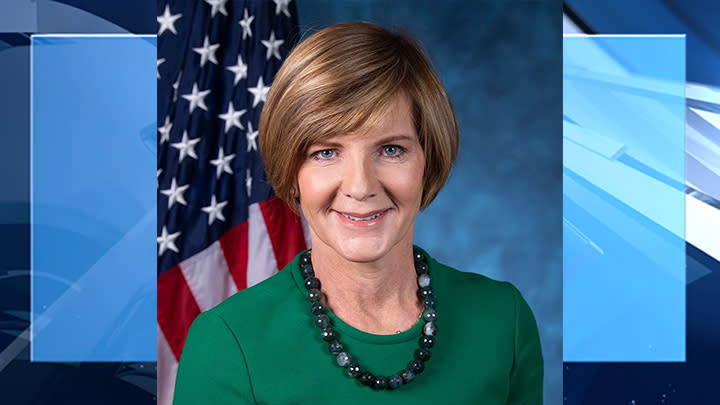Lee announces nearly $40 million for Nevada drinking water safety accounts

- Oops!Something went wrong.Please try again later.
LAS VEGAS (KLAS) — About $40 million in federal funding related to safe drinking water has been awarded to Nevada through the Bipartisan Infrastructure Law and the Environmental Protection Agency (EPA), according to announcements this week.
On Monday, U.S. Rep. Susie Lee (D-Nev.) announced nearly $27 million from the EPA to the Drinking Water State Revolving Loan Fund. Today, Lee’s office announced another $13 million has been awarded to the Nevada Department of Conservation and Natural resources.
“The flood of federal water funding into our state should reassure every Nevadan that our future is looking brighter and more sustainable every day,” Lee said. “This additional funding, most of which was provided by the Bipartisan Infrastructure Law, will not only continue to protect and preserve our water supplies, but also keep dangerous forever chemicals out of our faucets and precious water resources.”

The Thursday announcement reported the EPA has awarded about $3.7 million to the state’s Clean Water State Revolving Fund. An additional $459,000 was earmarked “specifically for investments to address emerging contaminants, including per- and polyfluoroalkyl substances (PFAs) in wastewater, stormwater, and nonpoint source pollution.”
PFAs — also called “forever chemicals” — are a growing concern as scientists study their presence in the environment. Compounds like Teflon were created by humans and have been found to persist in the environment rather than naturally breaking down. Some of the chemicals pose a threat to water quality.
The Thursday announcement also included about $8.7 million more for the Drinking Water State Revolving Loan Fund. That’s a program that provides financial assistance to help meet standards in the Safe Drinking Water Act. The federal government contributes 80% of the money to that fund while the state is responsible for the remaining 20%. The program addresses needs like improving drinking water treatment, fixing leaky or old pipes, improving sources of water supply, replacing storage tanks and other infrastructure projects.
For the latest news, weather, sports, and streaming video, head to KLAS.

